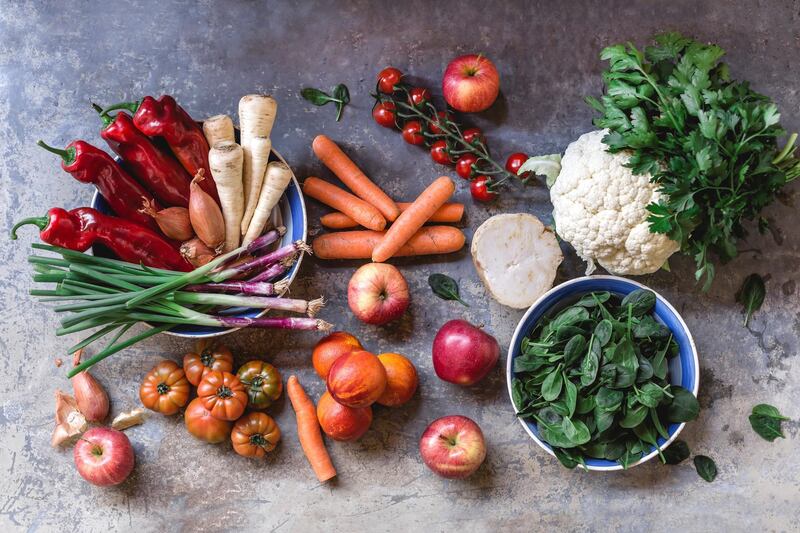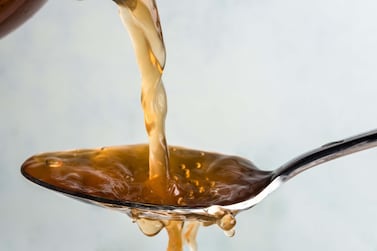It was recently announced that Dubai residents are allowed to go grocery shopping only once every three days, and many people are also choosing to limit trips to the supermarket to help curb the spread of the coronavirus outbreak.
This, coupled with grocery delivery delays, may mean you're having to make fresh vegetables and fruits last a bit longer than you usually would.
Here are a few tricks and tips you can use to keep a whole host of produce fresh.
1. Herbs and leafy greens
These are usually the first to wilt and turn, but there are some nifty ways you can keep them crisp. For bunches of herbs, remove any ties or rubber bands and, if they're dirty, give them a wash (if not, only wash them when you're about to use them). Pat them dry, then roll them up in a tea towel or a couple of layers of kitchen tissue. Then place them in a plastic bag or air-tight container.
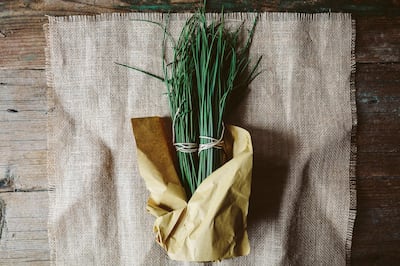
You can do the same thing with leafy greens, such as lettuce varieties and spinach. And, if they're beginning to look a bit tired, douse them in a large bowl of ice-cold water and swish them around for a bit to give them a new lease of life. Remove any rotten leaves from the pack before re-rolling and placing back in a container.
2. Tomatoes, garlic and root vegetables
While many of us already keep our potatoes and onions out of the fridge, it's also important to keep tomatoes in a dark, room-temperature environment, away from any heat sources. This allows them to ripen evenly. Once ripe, you can keep in the fridge, but they will lose their flavour pretty quickly once they're in there.
You should also keep ingredients such as squash and other root vegetables, such as garlic, sweet potatoes and pumpkin in a cupboard as opposed to the fridge.
3. Apples
The best way to keep apples fresher for longer is by putting them in a bowl or container and draping it with a damp paper towel. Keep these separate from other fruits.
4. Broccoli, lettuce and celery
You can keep these items fresh for between four to seven weeks if you wrap them in tin foil and then place in the fridge. You can also halve your celery stalks and cover them in water and keep them in a container.
5. Mushrooms
This is one of the hardest types of produce to keep fresh, but if you keep it in its original packaging for as long as possible, you should be able to get more days out of them. Also, storing loose mushrooms in a paper bag or wrapping them up in paper towels will help.
6. Cherries
Keep these as dry as possible, pop them in a plastic bag or container and put them in the fridge. Do not wash them until you eat them.
7. Berries
Strawberries, blueberries and raspberries, for example, don't tend to last very long, but there's a nifty way you can keep them fresh for up to two weeks. It's called a vinegar bath. Mix about a quarter cup of vinegar to one-and-a-half cups of water in a bowl, then leave the berries to soak for about five minutes.
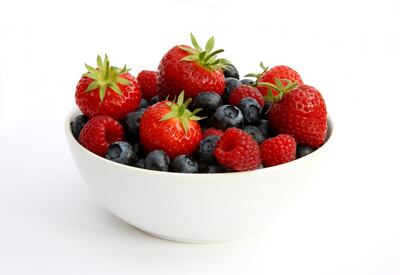
Rinse them with water (do it well, so they don't stink of vinegar), let them dry, then place them in a paper towel-lined container and close them up. Do make sure they're dry first.
8. Peaches and nectarines
You can keep these out of the fridge and at room temperature, but only until they're ripened. Once ripe, get them in the fridge, but eat them within a couple of days.
9. Bananas
You may already know you need to keep bananas away from all other fruits in order to preserve their life span, but did you know it's also helpful to store them in the fridge?
While the cooling process will make the skin go brown or black, the flesh within stays fresh for about five to seven days. Only put them in the fridge when they're ripe, though.
10. Citrus fruits, ginger and turmeric root
These ingredients may look lovely in a bowl on your kitchen counter, but keeping them out of the fridge is only shortening their lives. Keep them cold to eke them out.
11. Carrots
Carrots keep for quite a while anyway, but you can keep whole carrots fully immersed in water in a container to make them last even longer. If you've bought the farmers' market variety, with leaves at the top, cut the greens off. Change the water every two or three days.
12. Asparagus
Asparagus is one of the few vegetables that does better when wet. Trim off the stalks, then pop them in a glass of water, a bit like a bouquet of flowers, then put that in the fridge until you're ready to use them. Change the water every two days. You can also wrap the stalks in a damp paper towel instead.
13. Avocados
The fact is, avocados are never going to last very long, but there are ways you can make them keep for a day or two extra. Firstly, if they're not ripe, then don't put them in the fridge. Keep them in a cool, dark environment, perhaps a cupboard, until they're ripe and then put them in the fridge to pause the ripening process.
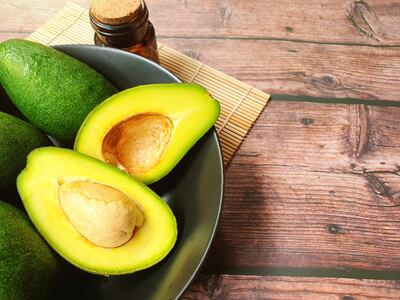
It's best to cut, mash or slice them first, then sprinkle with lemon or lime juice, and place in an air-tight container or tightly wrapped. This will make it last for an extra day (or two, if you're lucky).
14. Scallions or spring onions
Store these upright, roots down, in water at room temperature to get the most out of the tasty salad ingredient.
15. Capsicum or bell peppers
Pop them in a plastic bag to keep them dry and put them in the vegetable drawer. If you've already chopped them up, you can wrap them in a paper towel and place them in an air-tight container. That'll make the pieces last for about three days at most. It's best to keep them whole if you're not using them right away.
16. Ethylene-producing ingredients
Many fruits and vegetables produce a gas called ethylene, which causes other fruits and vegetables to ripen faster. It's important that you separate the ethylene-producing produce from the ethylene-sensitive ingredients.
So, for example, keep your apples, ripe bananas, blueberries, figs, mangoes, peaches, plums, potatoes and tomatoes – all of which produce the gas – away from the likes of asparagus, unripened bananas, broccoli, brussels sprouts, cabbage, cauliflower, carrots, cucumbers, aubergine, garlic, kale, onions, spinach, squash, sweet potatoes and strawberries.
Then again, if you need to ripen a fruit quickly, put them together and voila.
So, you could pop an unripened avocado in a bag with an apple, and it'll be ready to eat in double-quick time.
17. If in doubt, freeze
If you don't know how long it's going to be until you use a certain ingredient, and you're not sure if it'll last, then pop it in the freezer. Cut up your fruits and vegetables first, then store them in containers or resealable bags in the freezer.
Just note that most vegetables need to be blanched before being frozen. So you should boil up whole or cut pieces for one or two minutes, then immediately place them in ice-cold water to stop the cooking process. This neutralises bacteria and delays spoilage, and stops the vegetables from getting freezer burn.
They'll keep for a year or more this way.
You can then defrost and add them to meals later on, or pop frozen fruits and vegetables in a blender to make a tasty smoothie of leftovers.
